IIM Topper Raises Crores Selling Veggies to Help 35000 Bihar Farmers!
From AC carts that sell fair trade vegetables to tractor driving lessons for village women, Kaushlendra's unique initiatives have turned around the lives of thousands of impoverished farmers.
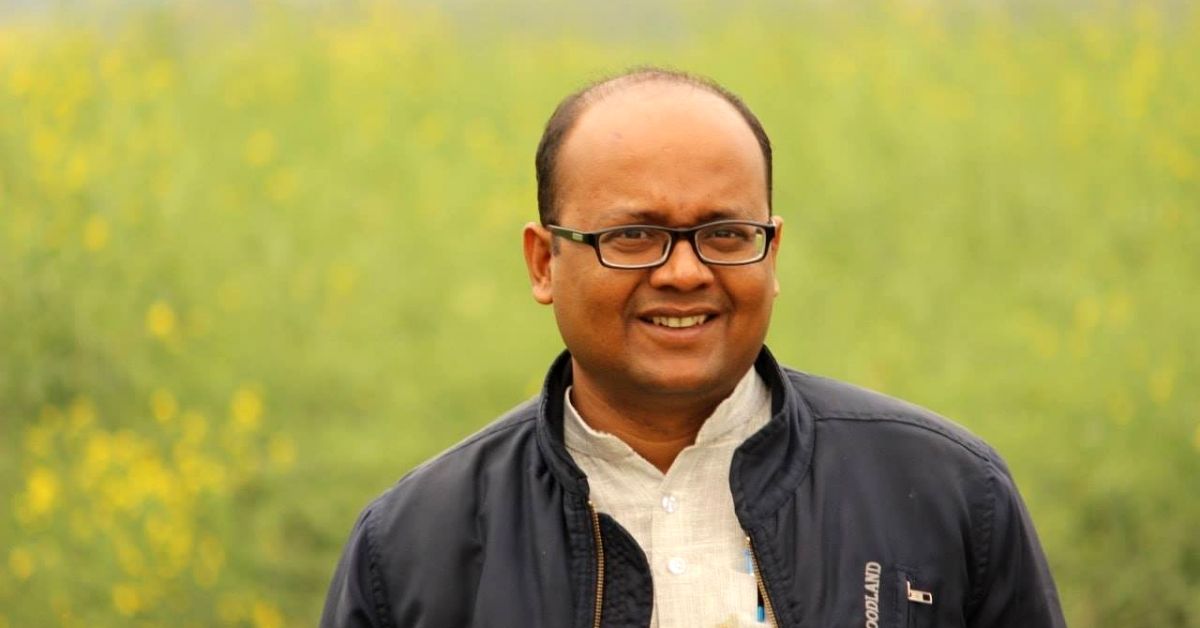
When young Kaushlendra got an opportunity to study in a school in Nawada, Bihar, 50 kms away from his home in Mahammadpur, he did not know that his views of life were about to change. Though coming from a humble background himself, he could not help but observe that the financial condition of some of his peers was way worse than his.
One indicator of this was that a few students wouldn’t go home even during vacations because their parents could not afford to feed them two square meals every day. And so, even for the young ones, living away from their parents in a school where the government funded their education and accommodation, was a preferred option.
Turn your wet waste into compost and become a mini-farmer yourself! Try these compost kits available on The Better India Shop.
“I met people from a variety of backgrounds during my school and college days, and throughout these years, my belief only became stronger. I started speaking with more people, tried to understand their issues and the obstacles they overcame to get admissions in the school. With every interaction, I learnt a little more about the socio-economic situation in our country,” shares Kaushlendra, in a conversation with The Better India (TBI).
The determination to work for the upliftment of Bihar’s rural poor was strong in Kaushlendra right from his childhood.
Today, this IIM-A alumnus has impacted 35,000 farming households across six districts in the state. However, his journey from the school in Nawada to becoming an IIM topper is not without its own set of obstacles.
Education as a means to bring about change:
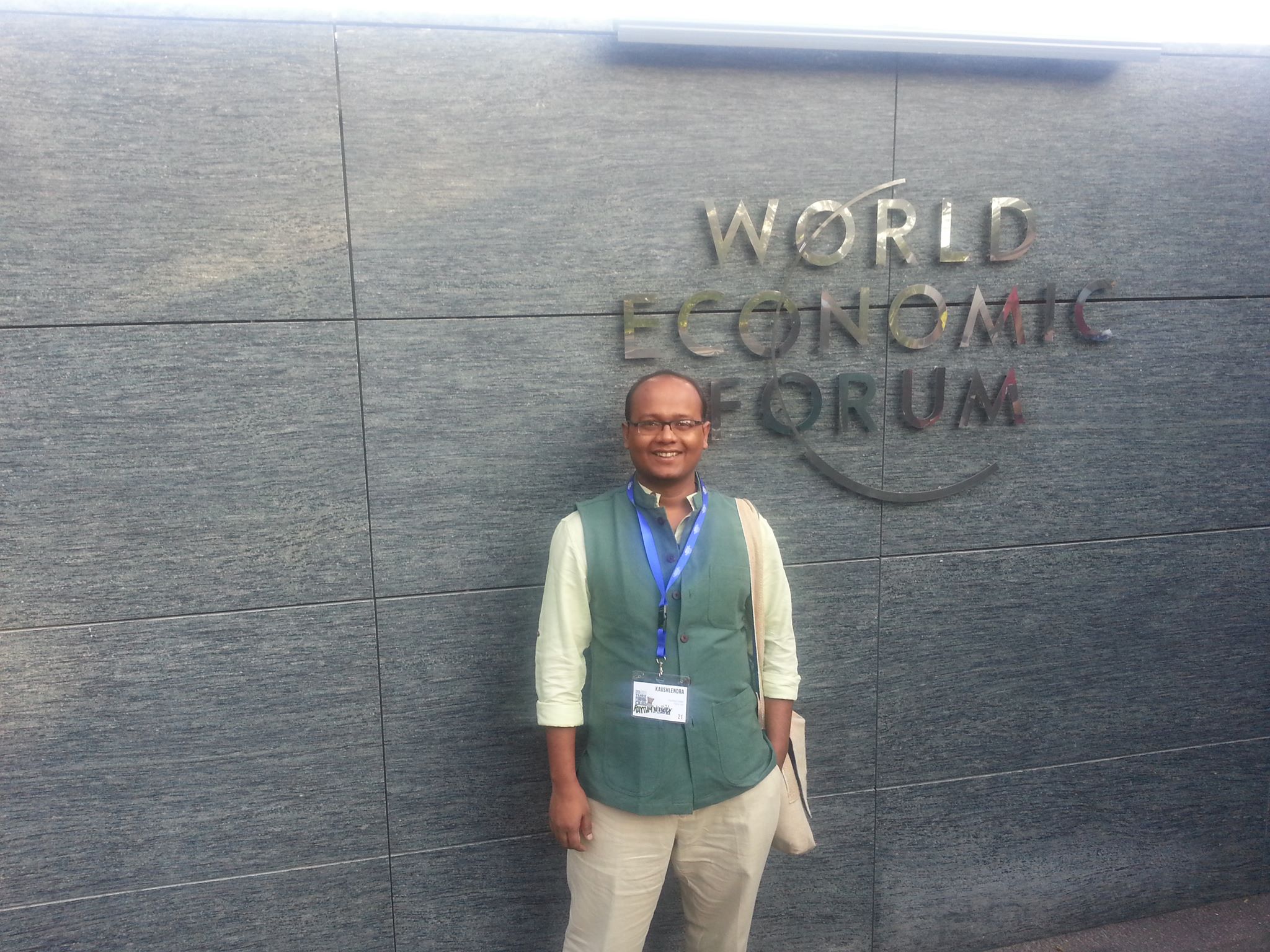
Being the youngest son of government-school teachers, the value of education reigned supreme Kaushlendra’s home. He pursued B.Tech in Agricultural Engineering from the Indian Council of Agricultural Research (ICAR), Junagadh and later, went to IIM-Ahmedabad for an MBA. Always a sharp student, he earned a gold medal in his final year at the IIM college.
Although he aimed to enter IIT, Kaushlendra could not clear the entrance exam. He believes this failure turned out to be in his favour and pushed him to pursue his passion for helping Bihar’s farmers.
Aligning scattered stars into constellations:
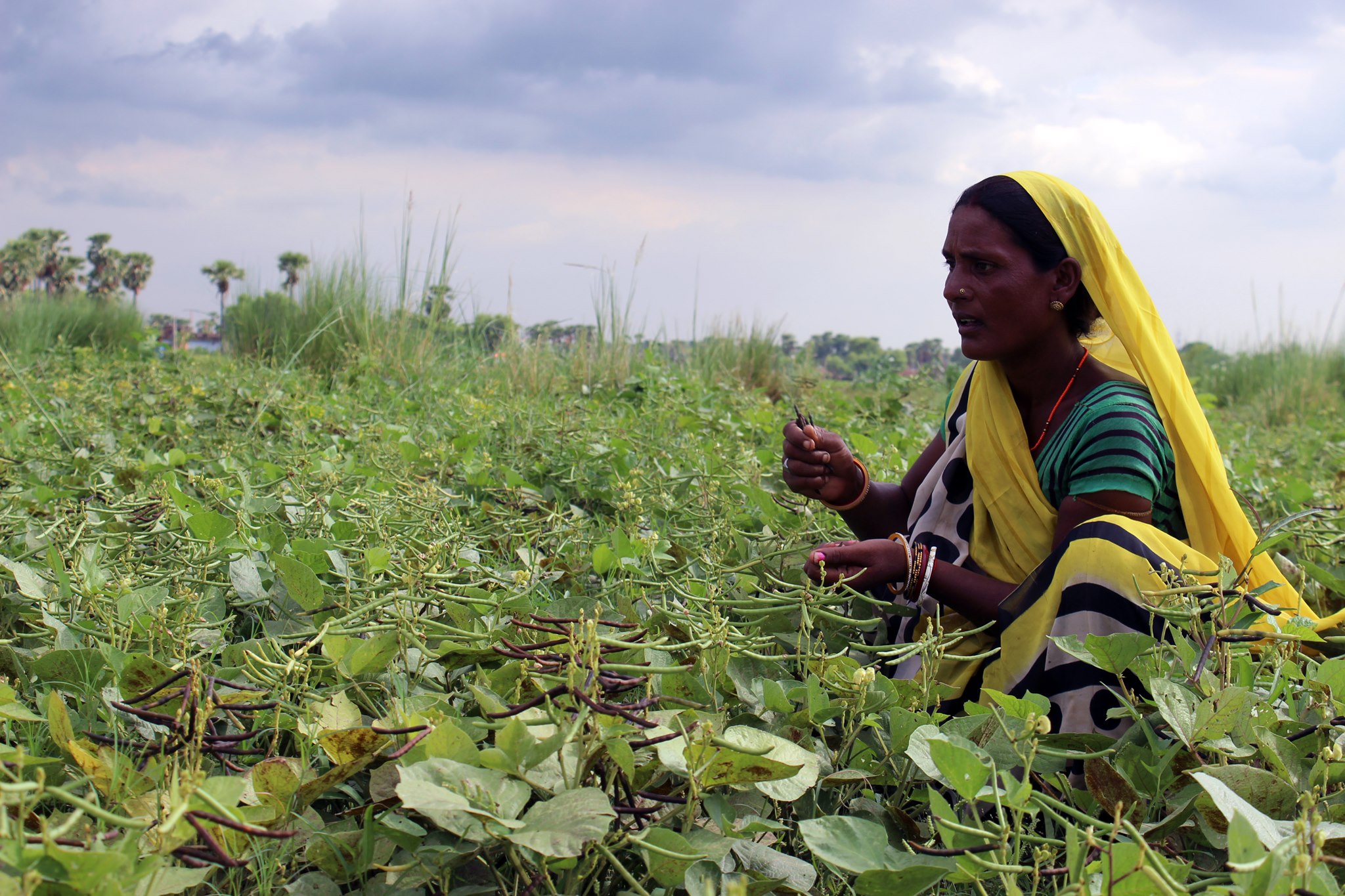
Getting his BSc degree in 2003, Kaushlendra was placed as a trainee field officer in a firm that manufactured drip irrigation systems in Andhra Pradesh. Working closely with farmers there, he understood that the way to empower farmers would be education and the integration of many government initiatives.
“Several initiatives across the country are helping farmers through, say, solar energy provision or getting the farmers’ markets online. And I noticed that these are isolated programmes, though wonderful by themselves, do not make a farmer completely independent. I decided to integrate several initiatives instead of starting something unique myself,” he tells TBI.
From AC carts to tractors, what empowered Bihar’s farmers:
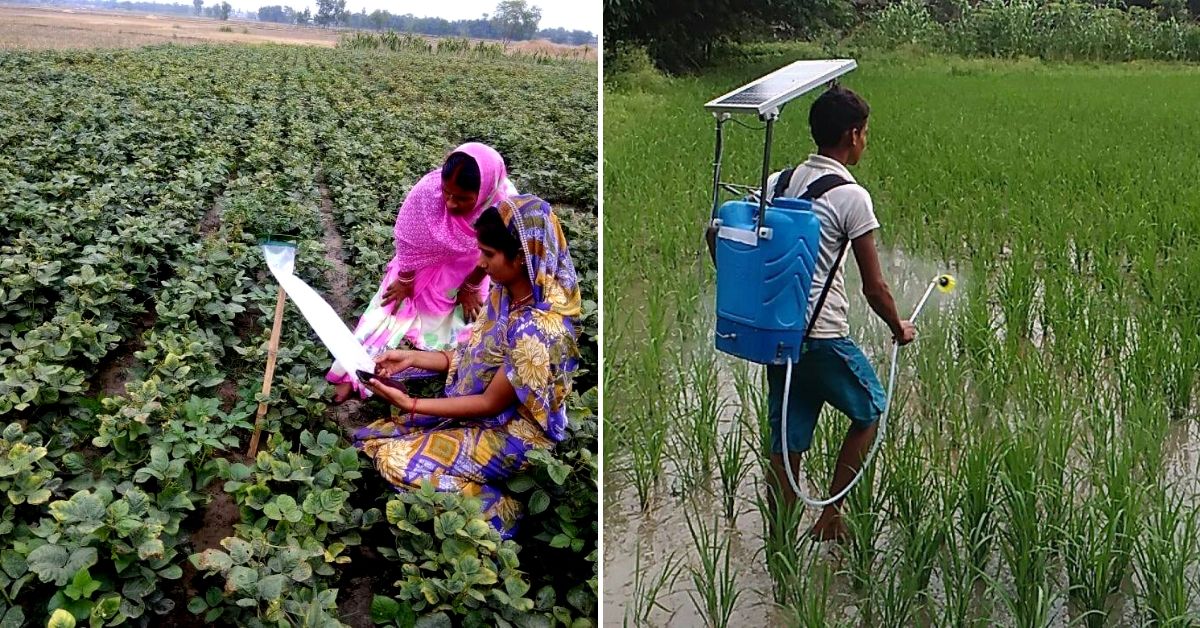
Along with his brother, Dhirendra Kumar, Kaushlendra set up the Kaushalya Foundation—a non-governmental organisation in a rented room. Starting in minimal space, the brothers began reaching out to needy farmers. Simultaneously, they also founded the Knids Green Private Limited (KGPL) to kickstart a programme that would enable farmers to receive their rightful income.
“Our agenda was to help farmers optimise their income through fair means while offering the end-customer with the choicest of fresh vegetables and fruits,” informs Kaushlendra. The farmers were reluctant to join, but soon the brothers got three farmers to attend their training workshops.
The duo knew that showing results were essential to the farmers and so they took a loan to buy 30 AC handcarts and partnered with vendors to sell the produce of those three farmers at cheaper rates.
You may also like: Bihar Man Grows 300+ Plants Around School, Creates Award-Winning Paradise!
“It wasn’t long before the farmers could see the advantages of our initiatives,” the 38-year-old tells us. “Although we were running in losses, success was just around the corner. We could see it. It doesn’t matter how many farmers we impacted. It mattered how sustainable our impact was.”
The IIM-topper explains that it is not the individual problems that they deal with. Every time a farmer or a villager comes to them with a problem, the team checks if there is a community or system that can resolve their issues.
Avinash Kumar, a manager with the Foundation, explains that while KGPL deals with marketing and getting vendors on board, the NGO works on the back-end logistics—right from organising farmers to training them to be entrepreneurs. “We have been raising an annual funding of Rs 5 crore for our work. KGPL partners with urban vendors, and restaurants who will purchase only our produce. Kaushalya ensures that the produce they receive is of optimum quality and that guarantees a fair income to our farmer partners.”
A few ways in which the Foundation is helping farmers:
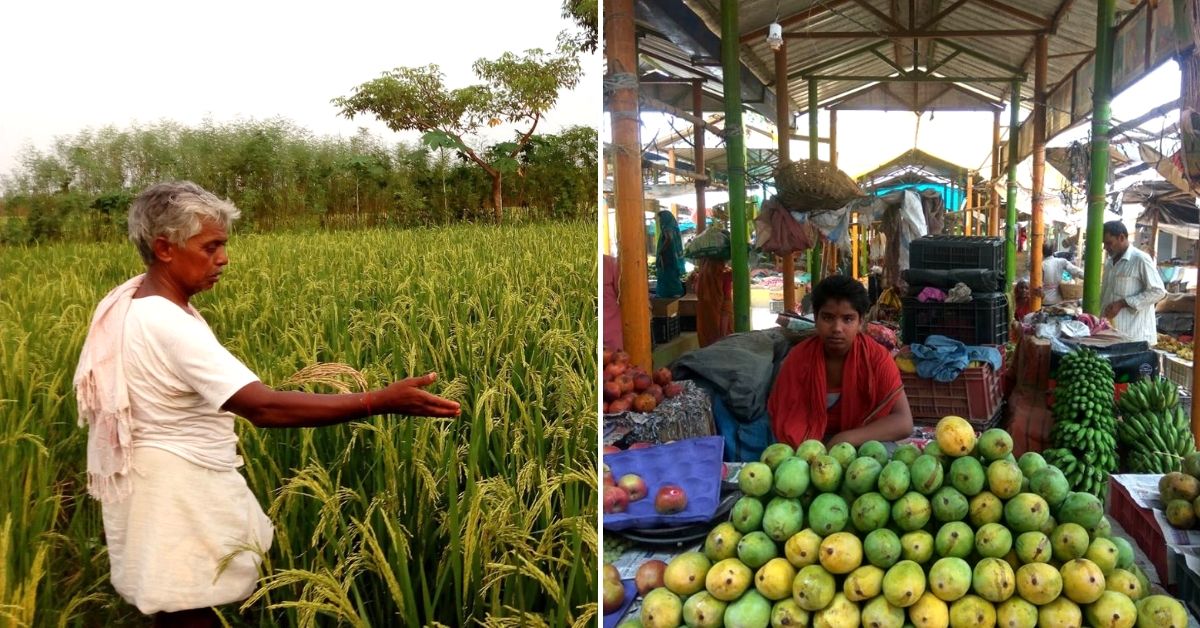
A lady farmer, who also worked in a rural bank, approached the NGO, saying that many people in the village are claiming that she was using their money for her personal needs. No amount of pleading, or showing the proof of her bank statements convinced them otherwise.
Kaushlendra realised that the main culprit here was illiteracy. The Foundation started an adult education programme, but the village, where close to 90 per cent of the females were unlettered, did not welcome the idea. Not one to be disheartened at a small obstacle, Kaushlendra started a course to teach the women how to drive a tractor. “It seems very disconnected,” he shares. “But, once the women learnt how to drive a huge tractor, the confidence that they can also study and read books started building up in them.”
You may also like: Bengaluru Man’s Venture Lets You Rent a Farm for Rs 2/Sq Ft & Grow Your Own Veggies!
Kumar told us that they handpick 10th or 12th pass villagers who show a flair for entrepreneurship and train them to establish businesses in their respective villages. So far, about 250 people have been trained under this model.
“We have also formed Farmer Producer Organisations (FPOs) wherein farmers form a group before selling their harvest. We have also formed five Mandis across Bihar which are owned by local communities. Farmers can sell their produce directly in these Mandis, cutting the need for middle-men,” says Kumar.
This way, instead of a blanket initiative for all farmers in Bihar, the team looks at customised, long-lasting solutions. Along with community programmes and opening up the markets to farmers, they have undertaken solar energy projects and irrigation projects that help farmers optimise their incomes. What began as a workshop for three farmers 11 years ago, has snowballed today into an initiative that has impacted about 35,000 farming households in Bihar.
(Edited by Saiqua Sultan)
Feature image source: Kaushalya Foundation.
Like this story? Or have something to share? Write to us: [email protected], or connect with us on Facebook and Twitter.
If you found our stories insightful, informative, or even just enjoyable, we invite you to consider making a voluntary payment to support the work we do at The Better India. Your contribution helps us continue producing quality content that educates, inspires, and drives positive change.
Choose one of the payment options below for your contribution-
By paying for the stories you value, you directly contribute to sustaining our efforts focused on making a difference in the world. Together, let’s ensure that impactful stories continue to be told and shared, enriching lives and communities alike.
Thank you for your support. Here are some frequently asked questions you might find helpful to know why you are contributing?


This story made me
-
97
-
121
-
89
-
167













